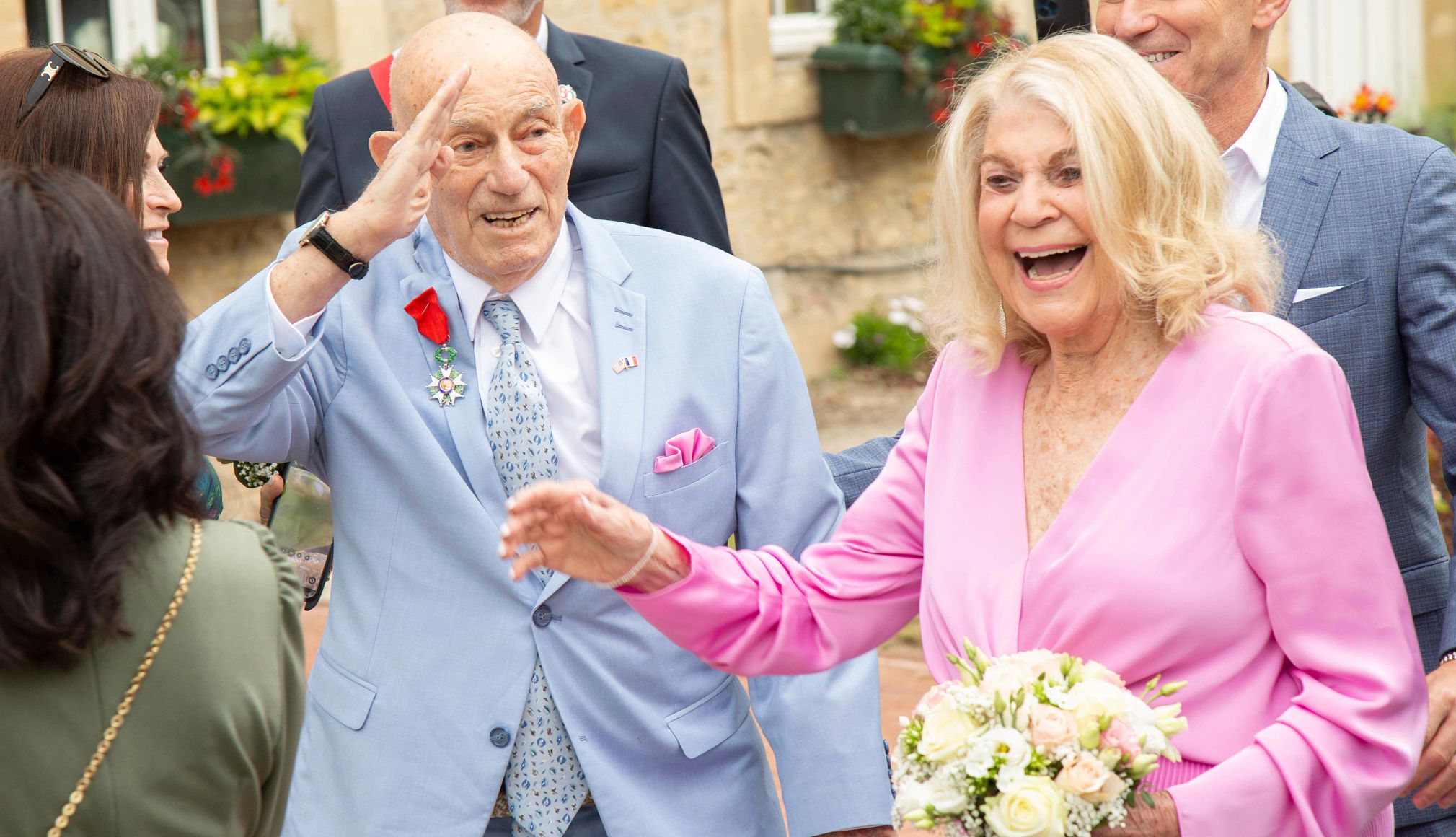AARP Hearing Center


Love is not just for young people. That’s what 96-year-old Jeanne Swirlin said on her way to the altar to marry her 100-year-old sweetheart, World War II veteran Harold Terens in a town near Normandy this past weekend.
But just because you’re entering a marriage at an older age, doesn’t mean you don’t have to put in effort. Marriage takes work, so while the problems might be a little different at an older age, the effort required remains the same.
Writer Nancy Davidoff Kelton shares what makes her later in life marriage work and why sometimes you just have to have to laugh through the hard times. Her story first appeared in a 2020 edition of AARP’'s The Ethel.
My husband, Jonathan, has a receding hairline. I have receding gums. I was 60 when I met him. He was 59. Between us, we have three ex-spouses, three adult children, four deceased parents, nine doctors and dentists, and too many deceased friends.
Michael Caine attributes his marital happiness to two bathrooms. Two bathrooms help. So do the following:
Discussing discomforts and feelings as they arise
Despite our ease together, our marriage requires work — ongoing work. We share what bothers us right away (I do) and calmly (Jonathan does). We don’t let things slide except when we should. For example, I am Oscar to Jonathan’s Felix. Whether my clutter and piles don’t bother him or he knows I’m not tidying up, he doesn’t bring up my messiness. But when we feel unheard or erased by each other or by other people, we discuss that and how to deal with it, change it, and protect ourselves and each other. A blessing at our age and stage: We do not feel obliged to oblige family members when it is uncomfortable, and we avoid situations and gatherings that bring discomfort.
Being open to therapy
As we lingered at my door at the end of our first date, Jonathan told me his age. I mentioned I was a little older. He said he would tell his therapist. On a subsequent date, I asked what made him let me know right away he was in therapy. He said he found it easy to talk to me, assumed I would be pleased and was in or had had therapy, and he thought it was no big deal. Right! Not only no big deal but important and useful for no-big-deal issues. We both believe in therapy, had much before we met and go for booster shots.
Balancing intimacy and space
I love our time together. I love our time apart. Having lived on my own for years and requiring much solitude as a writer and human being, I constantly juggle the two and work on being present where I am. It requires planning, prioritizing, compromise and patience, like all aspects of our relationship. On our 16-day Southwest road trip, with hours of togetherness in the car and at each stop, I took out my laptop and caucused with my muse. Jonathan excused himself for long periods to take pictures. We planned hikes together and walks apart. At home, we juggle independence and togetherness.






























































You Might Also Like
In The Mood: What’s a Normal Amount of Sex? And Help, My Libido Is Kaput!
You know those sex questions you are too embarrassed to bring up? We asked the experts for you
Gladness Gurus Share Top Tips for Finding Happiness
These strategies can make every day more fun, festive and fulfilling
25 Great Ways to Be a Better Friend
We asked for advice on how to strengthen friendships from relationship authors — here’s what they said
More Members Only Access
Enjoy special content just for AARP members, including full-length films and books, AARP Smart Guides, celebrity Q&As, quizzes, tutorials and classes
Recommended for You